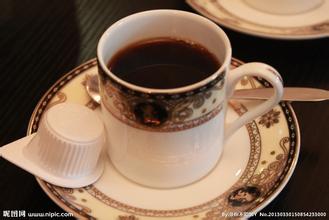Description of Java Coffee Flavor with strong Flavor introduction to the taste characteristics of fine coffee beans in producing areas
Java coffee the sour, bitter and sweet tastes of Java coffee match just right. Unique fragrance, after drinking, the aroma fills the whole mouth. Exhale the aroma from the mouth again from the nose, the smell is very full. Maybe you will find it too overbearing, because it will quickly occupy your taste buds, your mind and even your soul. Why resist it? The life we live in is full of sour, sweet, bitter and astringent, so let the smell of coffee take away everything in the world. What we enjoy is not just a cup of coffee, but also the quiet moment that coffee brings to us. Java has a mild, humid and diverse climate that makes it a harvest season all year round, with different kinds of coffee ripening at different times. What they grow is the unique quality of Java coffee beans, the coffee ground by this coffee bean, rich taste, endless aftertaste, can be called high-quality coffee.
Java coffee beans are famous for their early Java coffee, which refers to Arabica coffee formerly grown on the island of Java. It has a strong aroma, low acidity, taste lubrication, mixed with mocha coffee, the resulting "Java mocha mixed coffee" was once popular and became synonymous with top coffee.
At that time, Java coffee sold to Europe was a very special kind of coffee. At that time, it was shipped to Europe and the United States by sailboat, and the distance was long and the speed was slow, so it took a lot of time to transport. In this case, the coffee seems to have undergone a special fermentation and has a very unique taste.
Later, when the ship replaced the sailboat, due to the shortened delivery time, people drank relatively fresh coffee beans. But people who are used to drinking Chen beans are not used to the fresh taste, so they desperately pursue old Java coffee, so that the Indonesian government and some businessmen deliberately store fresh beans in warehouses for one or two years and then sell them to consumers. In fact, compared with fresh beans, the acidity of aged Java beans is close to zero, but the flavor is more intense. Because of the long storage time, the increase in cost and the limited quantity, Java has always been a hot item in the coffee market. In the 1880s, 0 merchants deliberately tampered with some fresh Guatemalan or Venezuelan beans to imitate aged Java for high prices. It is intolerable that 0 merchants dye coffee beans to make them look more like old Java, but there is no doubt that the dyed chemicals are certainly toxic.
Java produces only a small amount of Arabica beans, most of which were imported from Africa after the rust disaster. This kind of coffee has a strong bitter taste after roasting, but its aroma is extremely light. Although it has low acidity and delicate taste, it is rarely used for direct drinking. It is often used to mix mixed coffee or to make instant coffee.

Important Notice :
前街咖啡 FrontStreet Coffee has moved to new addredd:
FrontStreet Coffee Address: 315,Donghua East Road,GuangZhou
Tel:020 38364473
- Prev

Costa Rican Coffee Flavor description with unique Flavor introduction to the characteristics of the production area of the treatment methods of grinding degree
Tarrazu in Costa Rica is one of the major coffee producing areas in the world. The coffee produced is light and pure in flavor and pleasant in aroma. Costa Rica, with its fertile volcanic soil and good drainage, is the first country in Central America to grow coffee and bananas for commercial value. Coffee and bananas are the country's main exports. In 1729, coffee was introduced from Cuba to Goth.
- Next

Description of delicious Guatemalan Coffee Flavor Variety characteristics of Fine Coffee beans
Guatemala is located in the tropics, the northern and eastern coastal plains have a tropical rain forest climate, the southern mountains have a subtropical climate, the year is divided into two dry and wet seasons, with the wet season from May to October and the dry season from November to April of the following year. The narrow and fertile flatlands on the Pacific side of Guatemala have a tropical climate. The central plateau is also the cultural center of Guatemala, where the year-round temperature ranges from 1300 to 1800 meters.
Related
- Detailed explanation of Jadeite planting Land in Panamanian Jadeite Manor introduction to the grading system of Jadeite competitive bidding, Red bid, Green bid and Rose Summer
- Story of Coffee planting in Brenka region of Costa Rica Stonehenge Manor anaerobic heavy honey treatment of flavor mouth
- What's on the barrel of Blue Mountain Coffee beans?
- Can American coffee also pull flowers? How to use hot American style to pull out a good-looking pattern?
- Can you make a cold extract with coffee beans? What is the right proportion for cold-extracted coffee formula?
- Indonesian PWN Gold Mandrine Coffee Origin Features Flavor How to Chong? Mandolin coffee is American.
- A brief introduction to the flavor characteristics of Brazilian yellow bourbon coffee beans
- What is the effect of different water quality on the flavor of cold-extracted coffee? What kind of water is best for brewing coffee?
- Why do you think of Rose Summer whenever you mention Panamanian coffee?
- Introduction to the characteristics of authentic blue mountain coffee bean producing areas? What is the CIB Coffee Authority in Jamaica?

